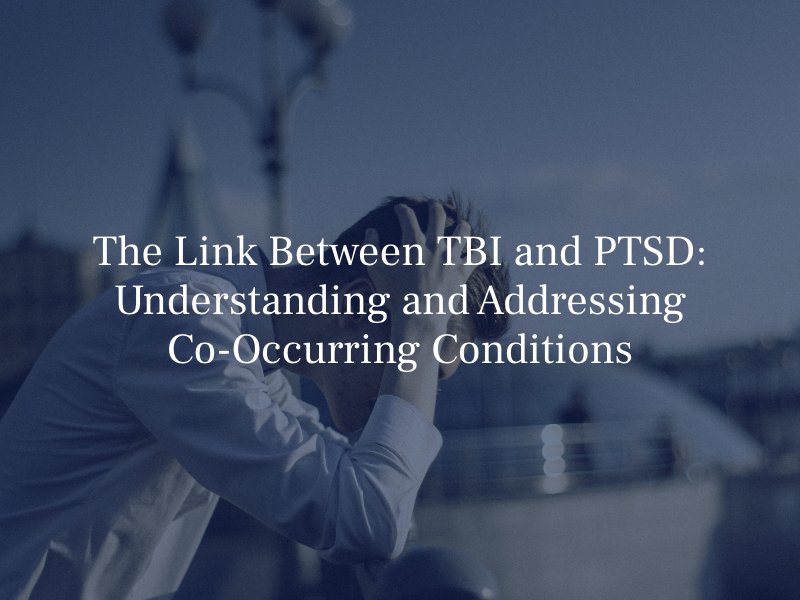The Link Between TBI and PTSD: Understanding and Addressing Co-Occurring Conditions
May 25, 2023 Posted In Brain Injuries
Beyond the physical challenges, individuals who experience a traumatic brain injury (TBI) often grapple with a wide range of co-occurring conditions. One of which is Post-Traumatic Stress Disorder (PTSD). While each presents distinct symptoms, there is a growing recognition of the strong link between TBI and PTSD. Understanding this connection is crucial for effective diagnosis, treatment, and management.

The Link between TBI and PTSD
Studies have shown a significant overlap between TBI and PTSD, with many individuals experiencing both conditions simultaneously. The shared experiences of trauma, alterations in brain structure and function, and common risk factors contribute to this co-occurrence. When a traumatic event results in TBI, the individual is also vulnerable to the psychological impact of the incident. Furthermore, the psychological distress associated with PTSD can exacerbate cognitive difficulties, making it challenging to distinguish between TBI-related symptoms and those attributed to PTSD.
Shared Mechanisms
The connection between TBI and PTSD lies in the shared underlying mechanisms that affect the brain. Both conditions involve disruptions in neurotransmitters, hormonal imbalances, inflammation, and structural changes. In addition, these alterations can lead to similar symptoms, such as memory problems, emotional dysregulation, sleep disturbances, and impaired attention. The interplay between physical and psychological trauma amplifies the overall impact on the individual’s well-being, making the management of these conditions complex and multifaceted.
Diagnosis and Treatment
Diagnosing co-occurring TBI and PTSD requires a comprehensive evaluation that takes into account the individual’s medical history, symptom presentation, and the nature of the traumatic events. Since the symptoms of these conditions often overlap, a thorough assessment by medical professionals, including neurologists, psychiatrists, and psychologists, is crucial. Proper diagnosis lays the foundation for an effective treatment plan.
Treatment strategies for individuals with TBI and PTSD often involve an integrated approach that addresses both conditions simultaneously. This may include a combination of prescription medications, psychotherapy, cognitive rehabilitation, and holistic methods such as mindfulness techniques, physical exercise, and stress reduction strategies. Collaborative efforts between healthcare providers from different disciplines are essential to ensure comprehensive care and improved outcomes.
Supporting Individuals with TBI and PTSD
Support networks play a vital role in helping individuals navigate the challenges of living with both TBI and PTSD. Providing a safe and understanding environment, promoting open communication, and offering resources for education and coping strategies can make a significant difference. Peer support groups and professional counseling services can provide invaluable support and validation. Loved ones can also encourage individuals to engage in relaxing activities, help them set realistic goals, and develop a plan of action to achieve them.
TBI and Other Co-Occurring Conditions
The journey of recovery after TBI is often complex, with individuals facing additional co-occurring conditions that can complicate their progress. Other common co-occurring conditions with TBI include depression and anxiety, sleep disorders, chronic pain, substance abuse and addiction, and cognitive impairments. The assessment process for discovering coexisting conditions with TBI is highly individualized. Physicians will tailor the evaluation to each patient’s specific needs, considering their symptoms, medical history, and potential risk factors.
Our Riverside traumatic brain injury attorneys can help you with your case.